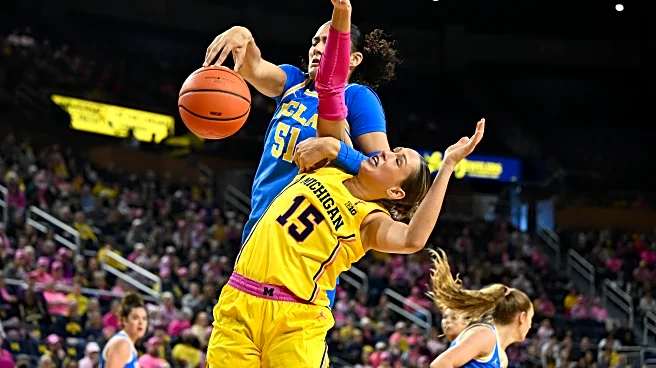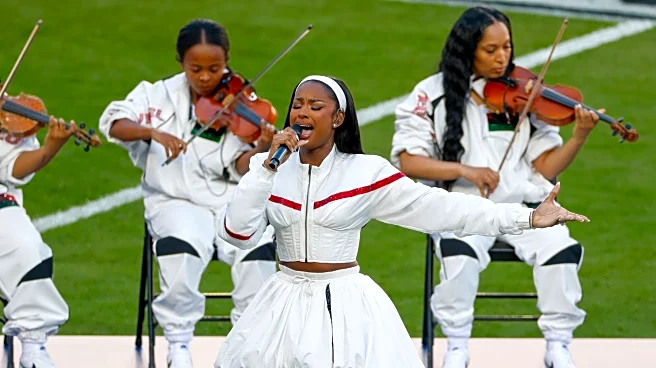What's Happening?
President Trump has recently made headlines for his comments on the physical appearance of various individuals during his visit to the Middle East. While addressing the Israeli Knesset, he remarked on the appearance of Israel Defense Forces Chief Eyal
Zamir, suggesting he was 'central casting' material. Trump also commented on Italian Prime Minister Giorgia Meloni's looks during a peace ceremony in Egypt, calling her a 'beautiful young woman.' These remarks are part of a pattern where Trump frequently comments on the physical attributes of people, including military leaders, political figures, and his own staff. Such comments have sparked discussions about the appropriateness and implications of focusing on physical appearance, especially in a political context.
Why It's Important?
Trump's focus on physical appearance is significant as it highlights his unconventional approach to public discourse, which often defies political correctness. This behavior can influence public perception and political dynamics, as it may resonate with his supporters who appreciate his candidness and perceived authenticity. However, it also raises concerns about reinforcing superficial judgments and potentially sexist attitudes, particularly in an era of heightened awareness around gender equality and harassment. Trump's remarks could impact diplomatic relations and public opinion, as they may be seen as undermining the seriousness of political and diplomatic engagements.
What's Next?
The ongoing scrutiny of Trump's comments may lead to further debates about the role of personal appearance in political discourse. Stakeholders, including political leaders and advocacy groups, might respond by emphasizing the importance of focusing on policy and leadership qualities rather than physical attributes. Additionally, Trump's remarks could influence future interactions with international leaders, potentially affecting diplomatic relations. As public figures continue to navigate the balance between authenticity and political correctness, Trump's approach may serve as a case study in political communication strategies.
Beyond the Headlines
Trump's comments on appearance may reflect broader cultural and societal attitudes towards beauty and image. This focus on aesthetics could perpetuate stereotypes and influence public expectations of leaders and public figures. The emphasis on physical appearance might also intersect with issues of body image and self-esteem, particularly in the context of media representation. As discussions around these topics evolve, Trump's remarks could contribute to ongoing conversations about the impact of public figures on societal norms and values.














